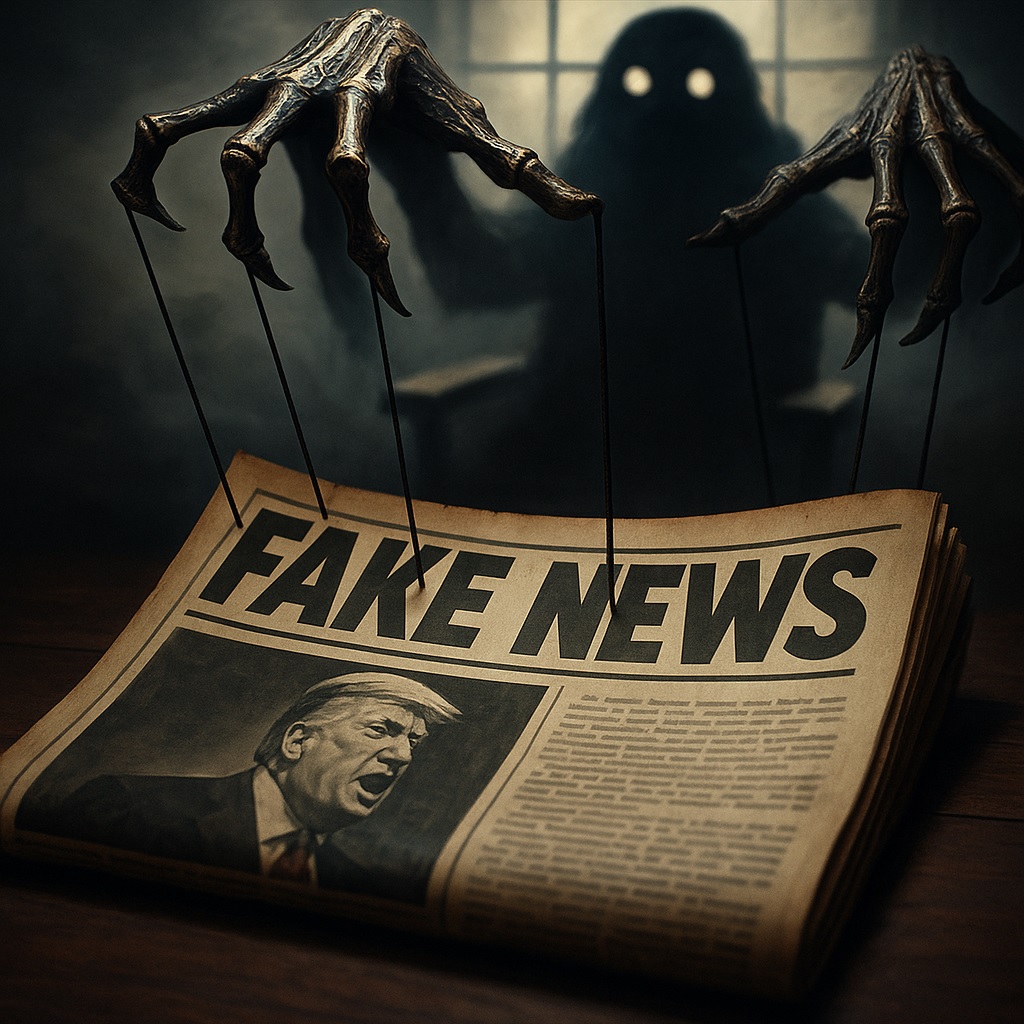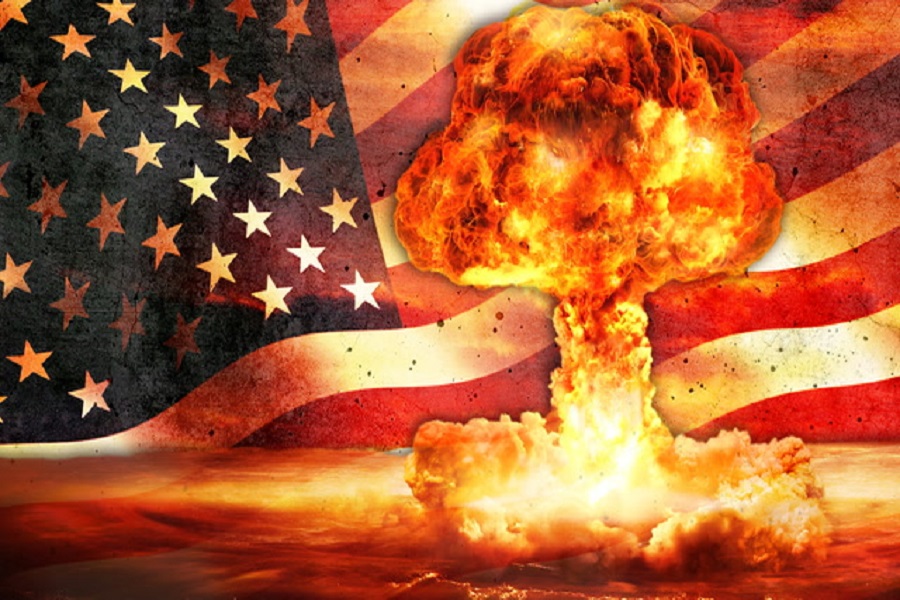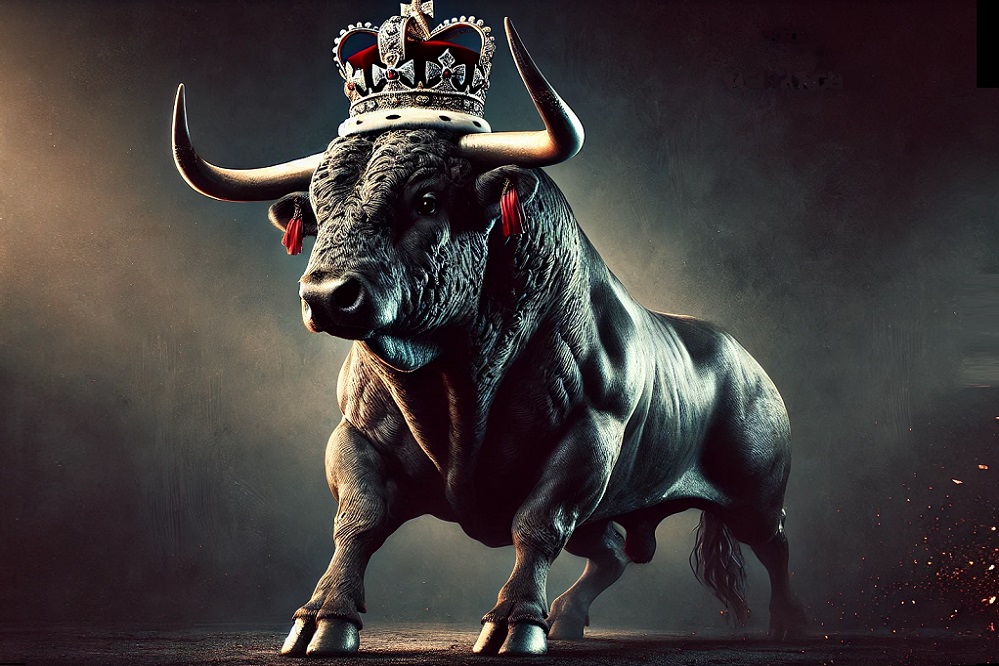In an age of unprecedented access to information, journalism should stand as a pillar of truth, uncovering facts, investigating corruption, and presenting balanced narratives that serve the public good. Instead, what we have today is a machine of manipulation. The modern media landscape is dominated by selective narratives, blatant bias, and a disturbing decay of journalistic integrity.
This collapse is no accident. It has been deliberately engineered. Powerful corporate and political interests have co-opted the press, transforming once-independent journalism into a weaponized tool for shaping public opinion. Media conglomerates, driven by profit and political allegiance, have turned newsrooms into echo chambers, drowning out dissenting voices and silencing investigative reporting. Citizens are left in a fog of misinformation, unable to distinguish fact from propaganda. The result is a manipulated populace and a crumbling democracy where partisan agendas take priority over truth.
If journalism is the cornerstone of democracy, then this cornerstone has been shattered. When the press no longer serves the people, democracy itself begins to die. This article will examine who truly owns the media, how Democrats enabled its consolidation, the devastating effects of controlled narratives, and why dismantling this monopoly is not just necessary but urgent. Finally, it will outline bold reforms that could be enacted by a future Trump administration to restore free speech and protect the democratic foundation of America.
Who Really Owns the News?
Over 90% of U.S. media is controlled by only six powerful corporations. This unprecedented concentration of power means a handful of elites dictate the stories Americans see, hear, and believe. It is far easier for six CEOs and their boards to collude on messaging than for thousands of independent outlets to create genuine diversity of thought. This stranglehold narrows public discourse and ensures that narratives on critical issues—elections, war, economics, and culture—are carefully manufactured rather than organically debated.
The Big Six are:
- Comcast – The largest U.S. media conglomerate, owning NBCUniversal, MSNBC, and Universal Pictures. Its CEO Brian Roberts and family wield immense influence over both entertainment and hard news.
- Disney – A cultural powerhouse controlling ABC, ESPN, Marvel, and Lucasfilm. Disney subtly embeds progressive messaging in both its news coverage and entertainment empire.
- AT&T (WarnerMedia) – Parent company of CNN, HBO, and Warner Bros., infamous for promoting ideological narratives under the guise of reporting.
- ViacomCBS – Led by Shari Redstone, this corporation dominates with CBS, Showtime, and Paramount, controlling news and pop culture simultaneously.
- News Corp (Fox Corporation) – Overseen by Rupert Murdoch, Fox offers a conservative counterweight but still operates within the same corporate profit-driven system.
- Sony Pictures – Japanese-owned yet heavily involved in shaping global narratives through Hollywood productions aligned with elite agendas.
The public is tricked into believing there is diversity of opinion, when in truth, these corporations dictate nearly every headline, script, and talking point.
Controlled Narratives That Shape Nations
Media consolidation has real-world consequences. When only a few entities control information, they can manipulate public perception on a massive scale. Recent events illustrate just how dangerous this has become.
During the 2024 Trump-Harris election, mainstream outlets relentlessly pushed the false narrative that the race was “neck and neck.” In reality, Trump consistently maintained a clear lead. By portraying the election as a dead heat, the media energized Democratic turnout while discouraging Republican confidence. Simultaneously, they amplified Harris’s accusations while burying Trump’s successes. This was not reporting—it was election interference through psychological warfare.
On foreign policy, U.S. coverage of the Israel-Palestine conflict is equally biased. Hamas is always portrayed as the lone aggressor, while the humanitarian crisis in Gaza is minimized or ignored. By omitting the historical context and the realities of Israeli policies, the press offers Americans a one-sided story designed to protect corporate and political alliances rather than inform the public.
The Russia-Ukraine war demonstrates another manipulated narrative. While Russia’s invasion is condemned, almost no attention is given to NATO’s provocations, Ukraine’s internal corruption, or the foreign powers profiting from endless military aid. Western governments are cast as heroes while their deeper agendas are hidden. This selective storytelling creates blind public support for policies that ultimately benefit globalist elites.
Even social media, which once promised to democratize information, now serves as a powerful tool for censorship and manipulation. Platforms like Facebook, TikTok, and Twitter use biased algorithms to boost favored narratives while suppressing dissent. Conservatives and independent voices are shadow-banned or outright silenced, creating the illusion of consensus while stifling genuine debate. These platforms have become digital gatekeepers, directly influencing elections and policy discussions without accountability.
The Democrat Party’s Role
The consolidation of media power did not happen naturally. Democrats actively facilitated it through deregulation and backroom deals. The Telecommunications Act of 1996, championed by Bill Clinton, dismantled decades of protections designed to prevent monopolies. Cross-ownership bans were lifted, allowing corporations to buy up TV stations, newspapers, and radio outlets in the same markets. In just a few years, thousands of independent voices were replaced by a handful of mega-conglomerates.
Democrats also cultivated deep ties with tech giants, using platforms like Facebook and Google to advance their narratives. These relationships create a feedback loop: tech companies censor conservative voices, mainstream media praises them for it, and Democrats reward both with favorable regulations and contracts. The end result is a tightly controlled information ecosystem that serves one political ideology while crushing all opposition.
Solutions: Breaking the Stranglehold
Restoring democracy requires dismantling this corrupted system. The following reforms must be enacted boldly and decisively:
- Enforce Media Ownership Limits:
Each corporation should be restricted to one outlet per medium—one TV station, one newspaper, one radio station, one digital platform. No more monopolies. - Strengthen Antitrust Laws:
Use the Sherman Act to break apart media conglomerates. Penalize corporations that hide behind shell companies to skirt regulations. - Reform the Telecommunications Act:
Reverse the disastrous policies of 1996 and incentivize local journalism with grants and tax credits to revive independent reporting. - Regulate Social Media:
Platforms must be politically neutral, transparent in their moderation practices, and legally prohibited from censoring lawful content. - Independent Oversight:
Establish a Federal Media Oversight Commission to audit corporations, investigate corruption, and ensure compliance with free speech standards. - Revitalize Public Journalism:
Create publicly funded institutions for investigative journalism free of corporate and political influence. Promote media literacy programs to help citizens detect bias and propaganda.
Conclusion: Journalism or Propaganda
When six corporations control the majority of America’s information, the line between journalism and propaganda disappears. Controlled narratives have already manipulated elections, fueled wars, and divided communities. The people are no longer informed participants in democracy—they are consumers of pre-packaged lies.
Dismantling the mainstream media monopoly is not just a policy preference. It is a matter of national survival. By breaking up conglomerates, holding tech companies accountable, and empowering independent voices, America can reclaim its most essential democratic pillar: a free and honest press.
The stakes could not be higher. If action is not taken now, the press will remain a weapon for elites rather than a shield for the people. This is not only about saving journalism—it is about saving the very soul of democracy itself.




